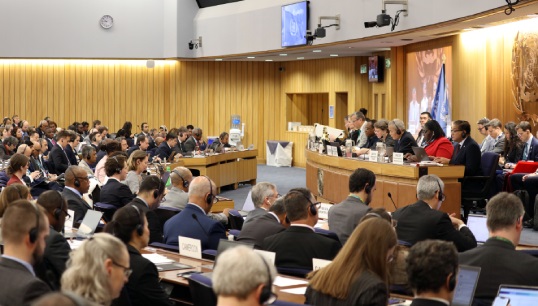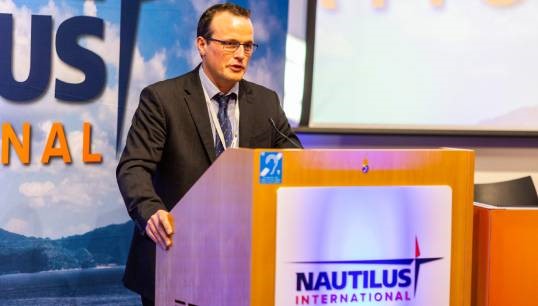
The 83rd session of the IMO's Marine Environment Protection Committee (MEPC) in April this year marked a pivotal moment in our industry's journey towards decarbonisation.
Tasked with finalising the so-called mid-term measures needed for international shipping to achieve net zero emissions by or around 2050, the Committee developed draft amendments to MARPOL Annex VI. These include the introduction of a Global Fuel Standard, which will regulate the GHG [greenhouse gas] intensity of fuel used by ships, and the establishment of a Net Zero Fund to accelerate the decarbonisation of the maritime sector.
A hard-fought compromise
The compromise agreement was reached on the final day of the meeting after a fraught week of negotiations, during which the prospect of a deal had appeared in serious doubt.
Even then, the agreement was passed only by majority vote, in the face of opposition from fossil fuel-producing states – who condemned the proposals as unworkable – and small island developing states, who felt the targets were insufficiently ambitious.
We understand this is the first time a formal vote has been required on a proposal at the IMO since the adoption of the Energy Efficiency Design Index (EEDI) in 2011.
Details of the framework
The new GHG reduction framework, which will enter into force in 2027, establishes a new Chapter V of MARPOL Annex VI, applicable to ships over 5,000 GT engaged in international voyages.
Under the regulations, ships will be required to report the average GHG intensity of the fuels used onboard, which will be subject to progressively stringent targets over time. A two-tier compliance system will apply: ships exceeding the thresholds must purchase remedial units, priced at $100 and $380 per tonne of CO2 equivalent for breaching the lower and higher thresholds, respectively.
Ships performing better than the most stringent threshold will receive surplus units, which can be traded, banked for future use, or cancelled. Funds raised from the sale of remedial units will be channelled through the newly established IMO Net Zero Fund, which will support the transition to low-emission vessels and encourage investment in innovation, infrastructure, and capacity-building in developing countries.
Nautilus members' reactions
We discussed the MEPC decisions at the Nautilus Professional and Technical Forum on 7 May, and members acknowledged that the framework represents a significant step towards decarbonising the maritime sector.
However, concerns were raised about the complexity of the system and the consistency of its implementation and enforcement. Concerns were also noted regarding the perceived lack of ambition especially from those states most vulnerable to climate change.

Mixed reception for SMarT extension
The UK Maritime & Coastguard Agency has announced that funding for the Support for Maritime Training (SMarT) scheme has been secured for a further 12-month period, extending its availability until March 2026.
The interim funding regime was introduced in September 2022, and enhanced the previous scheme by increasing the total government contribution to up to 50% of training costs for cadets enrolled on MCA-approved training programmes. Financial support was also offered for UK junior officers seeking their first management level certificate of competency.
While the extension of SMarT funding is good news, it is disappointing that we are still in this 'interim' regime. Originally intended as a temporary measure to bridge the gap while the recommendations of the Maritime Skills Commission's Cadet Report were implemented, progress has been slow. Over three and a half years since the project began, little to no advancement has been made on the majority of funding-related recommendations.
As a result, the underlying issues that prompted the report remain unaddressed – namely, cadet recruitment numbers that fall well short of the industry's stated need of 2,000 per year, and serious inconsistencies in onboard training.
The government is planning a full review of UK maritime training funding, which is a welcome step, but Nautilus maintains that the MSC Cadet Report's recommendations – particularly the call for 100% funding of cadet training – remain valid and should be implemented in full.
Pictured is Nautilus head of professional and technical David Appleton. Image: Brad Wakefield
Tags
